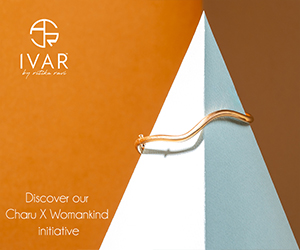
DR. JAIME SCHEHR: We’re going to talk about a buzzword today. I’ve never heard it coined this way until Dr. Debbie said it to me. It’s “toxic positivity.”
DR. DEBBIE MAGIDS: Toxic positivity is when we are not feeling emotionally well, and people around us are saying to buck up and feel better. It became a huge concept last year during the pandemic and on social media, because we were bombarded with messages of “utilize this time and do the projects you’ve never done. Get into shape; start meditating.” Most of us were gaining weight, out of our routines, feeling anxious, depressed or lonely. It’s pervasive, when you feel something and people are dismissive. It’s also recognizing that, even though we hate how it feels, we actually do it to other people.
The best way to address this is for each of us to talk about and think of when we’ve felt something that was dismissed by someone else. I’m a psychologist and I find that I do it sometimes, even to my clients and people in my life. When I catch it, I’m like, ‘That was terrible. I completely just missed how they’re feeling.’ If I’m doing it, there’s no way that everyone in the world is not doing it. Oftentimes, we can’t tolerate how we feel when the people around us are in pain. Both of you are moms; you’ll notice that you can only be as happy as your least-happy child. We want people to feel better before they are. The person on the receiving end feels misunderstood. It feels painful and frustrating, and you feel isolated in your feelings. This is why people really caught on to this term over COVID, because they feel so overwhelmed and alone.
JS: Last night, I finally got the opportunity to have dinner with a close friend of mine. She’s been going through something really challenging. We sit down, and the first thing she tells me is, “Do me a favor, don’t present me with any ‘Life is great’ bullshit. I’m having a really hard time and I need someone who will suffer with me for the next 20 minutes.” And I’m like, “OK, let’s suffer.” She did it in a funny way, but she basically asked me to not make her feel better, but empathize with being in the trenches.
ANNE MARIE KORTRIGHT: Sometimes that’s what you need. Somebody to be miserable with you.
DM: A lot of people don’t know what they need, because they’re not honed in on their emotional world, especially people who are caretakers. Then the key is to not fear what the other person thinks of you once you put out the need. If you’re so afraid of them being mad at you, or hurting their feelings, that also stops you from expressing your needs. It’s about having a voice, and being able to set boundaries for yourself and with yourself. People don’t consciously do this. It’s not done with bad intentions. They’re just trying to make you feel better, especially people who love you. But the people we love the most and are closest to us inadvertently hurt our feelings all the time. There’s not a human being who doesn’t know what it feels like to be misunderstood. If you’re in an emotion that doesn’t feel good and someone tells you to feel good, it’s a complete miss. You have to say, “It actually hurts when you say that, because I don’t feel that.”
AK: I also recommend looking into the people you are following and admiring on social media who perpetuate toxic positivity. You might just be following the wrong people. I muted those people on social media. Those influencers put me in a mood immediately. Step back a little bit, limit your exposure to those things.
DM:This is a sister issue of compare and contrast, and how you start to feel bad about yourself compared to other people. A client showed me this great quote attributed to Theodore Roosevelt: “Comparison is a thief of joy.” It’s really true. Comparison can be the thief of joy in an introspective moment, triggering something you’re not feeling good about. Then you can figure out if it’s something you want to work on. It’s great to block the people making you feel bad, of course.








